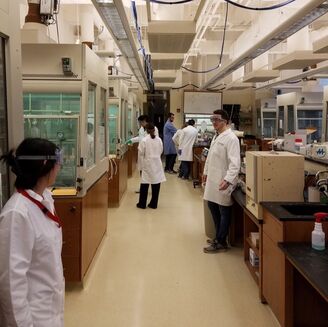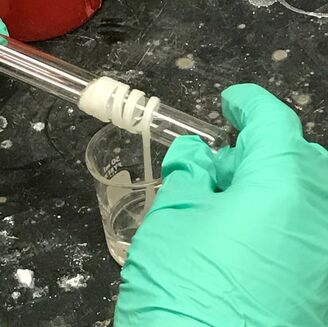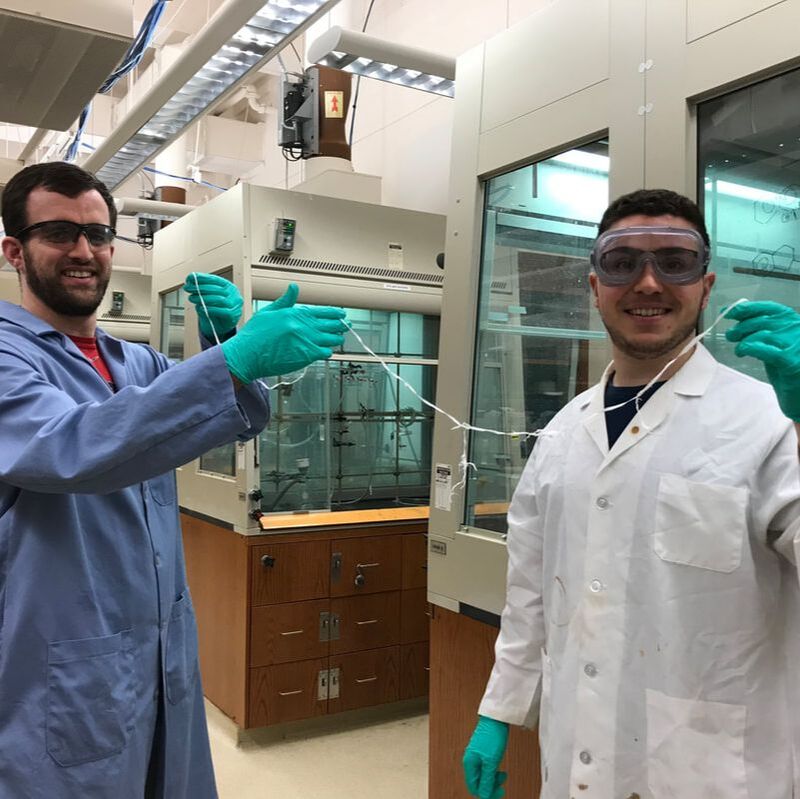Teaching |
Chemistry 261: Organic Chemistry I
The first part of a two-semester survey of organic chemistry lecture and lab. The course includes an introduction to organic structures, reactions, and reaction mechanisms. The laboratory is an introduction to methods in organic chemistry including separation and methods of purification of organic compounds. Prerequisite: Chem 112A, Chem 152.
Chemistry 452: Synthetic Polymer Chemistry
CHE 452L is an upper-level undergraduate and graduate level course that describes various methods for the synthesis and characterization of polymers. Copolymers, control of architecture, sequence, polymer reactivity, polymer properties, structure/property relationships, and applications of polymers are discussed. Current topics of interest from the recent literature are also covered. The learning objective should be that students are familiar with a variety of polymerization techniques – both in terms of mechanism and protocol – and they are able to design specific monomers in order to develop novel polymeric materials with precise architectures, molecular weights, and function. Prerequisite: Chem 262 or permission of the instructor.
Creation of New Polymer Teaching Lab
Beginning in spring 2020, a new laboratory component was added to go along with the polymer lecture course (CHE 452), which raised it to a four-credit hour course. In the polymer lab, students do four standard syntheses on step-growth, ring-opening, anionic, and atom transfer radical polymerizations to gain basic skills in making and characterizing polymers. These standard labs are then followed by independent projects in which Prof. Barnes collaborates with the students as they pursue projects that they create, building off of already published works in the literature. In taking this lab, students gain first-hand knowledge of polymer synthesis and characterization (NMR and GPC), as well as several other techniques like dynamic light scattering, rheology, etc.


